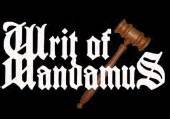Jones sued a TV production company, alleging that he was shot at and received death threats as a result of his appearance (even t hough blurred and voice-altered) on “The First 48,” a show about homicide investigations. The company did not prevail on its motion to dismiss based on the Texas anti-SLAPP statute: “The plain language of section 27.010(c) excludes legal actions seeking recovery for bodily injury. . . . Mr. Jones’s negligence claim seeks to recover for the bodily injuries—four gunshot wounds—that he claims he sustained as a result of Kirkstall’s negligence in editing and producing its program. Without expressing any opinion on the merits of his claim, we conclude that Mr. Jones has shown that it is exempted from application of the TCPA.” Kirkstall Road Enterprises v. Jones, No. 05-16-00859-CV (April 27, 2017).
hough blurred and voice-altered) on “The First 48,” a show about homicide investigations. The company did not prevail on its motion to dismiss based on the Texas anti-SLAPP statute: “The plain language of section 27.010(c) excludes legal actions seeking recovery for bodily injury. . . . Mr. Jones’s negligence claim seeks to recover for the bodily injuries—four gunshot wounds—that he claims he sustained as a result of Kirkstall’s negligence in editing and producing its program. Without expressing any opinion on the merits of his claim, we conclude that Mr. Jones has shown that it is exempted from application of the TCPA.” Kirkstall Road Enterprises v. Jones, No. 05-16-00859-CV (April 27, 2017).
Monthly Archives: April 2017
 The recent memorandum opinion in In re NCH Corp reminds of two basic points about mandamus practice.
The recent memorandum opinion in In re NCH Corp reminds of two basic points about mandamus practice.
- In a mandamus situation arising from the threatened disclosure of trade secrets: “No adequate appellate remedy exists if a trial court orders a party to produce privileged trade secrets absent a showing of necessity. In re Bass, 113 S.W.3d 735, 745 (Tex. 2003) (orig. proceeding) (citing In re Cont’l Gen. Tire, Inc., 979 S.W.2d 609, 615 (Tex. 1998) (orig. proceeding)). Further, a trial court abuses its discretion when it erroneously compels production of trade secrets without a showing that the information is ‘material and necessary.’ Id. at 738, 743.”
- The Fifth Court is using slightly revised “standard” language when denying mandamus relief in a short opinion: “To be entitled to mandamus relief, a relator must show both that the trial court has clearly abused its discretion and that relator has no adequate appellate remedy. In re Prudential Ins. Co., 148 S.W.3d 124, 135–36 (Tex. 2004) (orig. proceeding). . . . Based on the record before us, we conclude relator has not shown it is entitled to the relief requested. Accordingly, we DENY relator’s petition for writ of mandamus. See Tex. R. App. P. 52.8(a) (the court must deny the petition if the court determines relator is not entitled to the relief sought).
No. 05-17-00360-CV (Apr. 25, 2017) (mem. op.)
 Smith intervened in a case after a judgment had been entered; the trial court granted a motion to strike his intervention. Resolving a tangled web of procedural issues, the Fifth Court held that (1) the striking of his intervention was not appealable before final judgment; (2) Smith’s appeal was limited to the merits of his intervention, not the claims of others; and (3) Smith’s filing of a motion for new trial extended the appellate deadlines. Smith v. City of Garland, No. 05-16-00454-CV (Apr. 20, 2017).
Smith intervened in a case after a judgment had been entered; the trial court granted a motion to strike his intervention. Resolving a tangled web of procedural issues, the Fifth Court held that (1) the striking of his intervention was not appealable before final judgment; (2) Smith’s appeal was limited to the merits of his intervention, not the claims of others; and (3) Smith’s filing of a motion for new trial extended the appellate deadlines. Smith v. City of Garland, No. 05-16-00454-CV (Apr. 20, 2017).
The Fifth Court reversed an award of lost profits in Radiant Financial, Inc. v. Bagby, which allegedly arose from improper customer solicitation about an insurance product, noting, inter alia: “Radiant admits the five policies [the expert] used in his estimate were not available at the time Radiant released the fifty-nine investors. Radiant argues that it had sufficient policies availale, but none of the investors chose to invest in those poliicies, even though Radiant presented those policies to its investors.” The Court concluded: “[T]o conclude the nineteen investors would have invested with Radiant instead of Paladin, we would be required to stack assumption upon assumption, which we will not do.” No. 05-16-00268-CV (April 18, 2017) (mem. op.)
 The Fifth Court affirmed summary judgment for D Magazine in a defamation suit by a former volunteer, finding that most of the statements at issue were unactionable opinions or accurate statements of fact. Summarizing the underlying principles of free speech, the opinion reminds that a “rhetorical flourish” that is “merely unflattering, abusive, annoying, irksome, or embarrassing, or that only hurts the plaintiff’s feelings, is not actionable.” The court lacked appellate jurisdiction over part of a related appeal by the Dallas Symphony, since it involved the denial of a summary judgment about a tortious interference claim rather then free speech issues, although the Court was able to address the civil conspiracy claim against the Symphony. D Magazine Partners LP v. Reyes, No. 05-16-00294-CV (April 18, 2017) (mem. op.)
The Fifth Court affirmed summary judgment for D Magazine in a defamation suit by a former volunteer, finding that most of the statements at issue were unactionable opinions or accurate statements of fact. Summarizing the underlying principles of free speech, the opinion reminds that a “rhetorical flourish” that is “merely unflattering, abusive, annoying, irksome, or embarrassing, or that only hurts the plaintiff’s feelings, is not actionable.” The court lacked appellate jurisdiction over part of a related appeal by the Dallas Symphony, since it involved the denial of a summary judgment about a tortious interference claim rather then free speech issues, although the Court was able to address the civil conspiracy claim against the Symphony. D Magazine Partners LP v. Reyes, No. 05-16-00294-CV (April 18, 2017) (mem. op.)
Defendants sought review of a post-answer default judgment by restricted appeal. Unfortunately for them, “the record is silent regarding whether notice of the final hearing date was sent . . . . ” They thus failed to show error on the face of the record, as required in a restricted appeal, because “absence in the record of any proof that notice . . . was sent to a party is ‘just that–an absence of proof of error.” Odela Group LLC v. Double-R Walnut Management LLC, No. 05-16-00206-CV (April 12, 2017) (mem. op.) (applying and quoting Gold v. Gold, 145 S.W.3d 212 (Tex. 2004)).
 AWD brought a flat tire to Logan & Son for repairs. Jaimes, who worked for Logan * Son, was injured while working on the tire, and contended that his employer, Logan & Son, was an independent contractor of AWD. The Fifth Court disagreed: “The evidence showed that AWD was simply a customer who did not have a right to control any aspect of Logan and Son’s work. When Jaimes was asked at his deposition what he was claiming AWD did to cause his injuries, he [only] said, ‘they brought the truck.'” Jaimes v. Lozano, No. 05-16-00165-CV (April 14, 2017) (mem. op.)
AWD brought a flat tire to Logan & Son for repairs. Jaimes, who worked for Logan * Son, was injured while working on the tire, and contended that his employer, Logan & Son, was an independent contractor of AWD. The Fifth Court disagreed: “The evidence showed that AWD was simply a customer who did not have a right to control any aspect of Logan and Son’s work. When Jaimes was asked at his deposition what he was claiming AWD did to cause his injuries, he [only] said, ‘they brought the truck.'” Jaimes v. Lozano, No. 05-16-00165-CV (April 14, 2017) (mem. op.)
In Viveri Youth Service v. Orme, the Fifth Court dismissed an appeal for lack of a final judgment. While the docket sheet indicated the case had been closed, the Court observed: “The last order, however, contains no language of finality or other indication the case was closed. While the trial court’s docket sheet reflects the case was closed, a docket sheet entry does not constitute a judgment or other appealable order of the trial court.” No. 05-17-00002-CV (April 11, 2017) (mem. op.)
 A mandamus petition challenged an order allowing a “court-supervised winding up” of an LLC that owned over 700 acres of undeveloped land in Denton County. As to the procedural posture of the case, the Fifth Court obseved: “[M]andamus relief is proper to the extent the winding-up order permits execution before the entry of a final, appealable judgment.” On the merits, the court concluded that this order had that effect, “because if SRE is wound up and the property sold in the interim, [Petitioner]’s property rights and purported right to continue the business will be lost forever.” In re Spiritas, No. 05-16-00791-CV (Apr. 6, 2017) (mem. op.)
A mandamus petition challenged an order allowing a “court-supervised winding up” of an LLC that owned over 700 acres of undeveloped land in Denton County. As to the procedural posture of the case, the Fifth Court obseved: “[M]andamus relief is proper to the extent the winding-up order permits execution before the entry of a final, appealable judgment.” On the merits, the court concluded that this order had that effect, “because if SRE is wound up and the property sold in the interim, [Petitioner]’s property rights and purported right to continue the business will be lost forever.” In re Spiritas, No. 05-16-00791-CV (Apr. 6, 2017) (mem. op.)
 The long-running dispute between the City of Dallas and the Topletz family, which owns a number of residential rental properties, reappeared in the case of Topletz v. City of Dallas. The Fifth Court substantially affirmed a temporary injunction in favor of the City and a class of tenants, reversing as to one provision that “prohibits appellants from raising rent, properly initiating eviction proceedings, or evicting . . . without leave of the trial court.” This provision was overly broad because it “enjoins activities the appellants otherwise have a legal right to perform . . . .” No. 05-16-00741-CV (April 6, 2017) (mem. op.) (citing, inter alia, Webb v. Glenbrook Owners Ass’n, Inc., 298 S.W.3d 374 (Tex. App.–Dallas 2009, no pet.)).
The long-running dispute between the City of Dallas and the Topletz family, which owns a number of residential rental properties, reappeared in the case of Topletz v. City of Dallas. The Fifth Court substantially affirmed a temporary injunction in favor of the City and a class of tenants, reversing as to one provision that “prohibits appellants from raising rent, properly initiating eviction proceedings, or evicting . . . without leave of the trial court.” This provision was overly broad because it “enjoins activities the appellants otherwise have a legal right to perform . . . .” No. 05-16-00741-CV (April 6, 2017) (mem. op.) (citing, inter alia, Webb v. Glenbrook Owners Ass’n, Inc., 298 S.W.3d 374 (Tex. App.–Dallas 2009, no pet.)).
 The case of MacFarland v. Le-Vel Brands involved a blog post on the website “Lazy Man and Money,” which was critical of a multi-level marketing company that sells dietary supplements. The trial court denied the defendant’s motion to dismiss under the Texas anti-SLAPP statute and the Fifth Court reversed, finding: (1) the suit involved the blogger’s speech; (2) the “commercial speech” exception did not apply; and (3) the plain
The case of MacFarland v. Le-Vel Brands involved a blog post on the website “Lazy Man and Money,” which was critical of a multi-level marketing company that sells dietary supplements. The trial court denied the defendant’s motion to dismiss under the Texas anti-SLAPP statute and the Fifth Court reversed, finding: (1) the suit involved the blogger’s speech; (2) the “commercial speech” exception did not apply; and (3) the plain tiff could not establish damages for either business disparagement or defamation. (On that subject, compare the recent case from the Fifth Court of Glassdoor v. Andra Group, which did find sufficient evidence of damage.) The opinion carefully reviews the leading recent authorities on the scope of these provisions of the statute. The case was remanded for further proceedings, including consideration of the defendant’s attorneys’ fees and costs. No. 05-16-00672 (March 23, 2017) (mem. op.)
tiff could not establish damages for either business disparagement or defamation. (On that subject, compare the recent case from the Fifth Court of Glassdoor v. Andra Group, which did find sufficient evidence of damage.) The opinion carefully reviews the leading recent authorities on the scope of these provisions of the statute. The case was remanded for further proceedings, including consideration of the defendant’s attorneys’ fees and costs. No. 05-16-00672 (March 23, 2017) (mem. op.)
A law firm moved for summary judgment as to an unpaid balance, attaching an affidavit which in turn had several invoices attached. The Fifth Court reversed a summary judgment for the firm, noting that the affidavit did not (1) attach a complete set of invoices, (2) was missing entire pages, (3) only reflected that they were sent to one of the relevant parties, and (4) did not attach the computer records used to calculate the net balance. Thus, “[w]e conclude that without the invoices or computer records [the witness] relied on to support his affidavit, the affidavit was conclusory.” Acrey v. Kilgore & Kilgore PLLC, No. 05-15-01229-CV (March 30, 2017) (mem. op.)
 Verveba Communications and a former employee, Jewell Thomas, settled a dispute about travel expenses after a JP court trial with this release: “each party hereby: (1) releases all claims against the other; (ii) waives his/its right to file a motion for new trial, [and] (iii) waives his/its right to appeal the [JP court] judgment . . . .” Jewell then brought new claims, beyond the contract claim litigated in JP court, and the Fifth Court affirmed their dismissal: “None of these cases [cited by Thomas] held that the release must identify each claim or cause of action by name to be effective and, in fact, none of the releases in these cases identified the claims being released specifically by name.” Thomas v. Verveba Telecom, LLC, No. 05-16-00123-CV (March 31, 2017) (mem. op.)
Verveba Communications and a former employee, Jewell Thomas, settled a dispute about travel expenses after a JP court trial with this release: “each party hereby: (1) releases all claims against the other; (ii) waives his/its right to file a motion for new trial, [and] (iii) waives his/its right to appeal the [JP court] judgment . . . .” Jewell then brought new claims, beyond the contract claim litigated in JP court, and the Fifth Court affirmed their dismissal: “None of these cases [cited by Thomas] held that the release must identify each claim or cause of action by name to be effective and, in fact, none of the releases in these cases identified the claims being released specifically by name.” Thomas v. Verveba Telecom, LLC, No. 05-16-00123-CV (March 31, 2017) (mem. op.)
